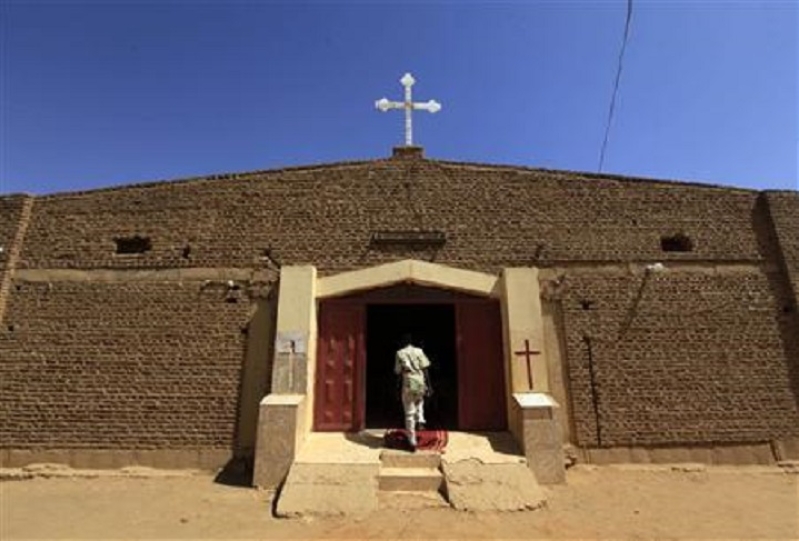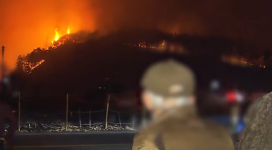
State officials in Sudan plan to demolish at least 25 church buildings in the Khartoum area, according to Christian leaders.
A June 13, 2016 letter from the Executive Corporation for the Protection of Government Lands, Environment, Roads and Demolition of Irregularities of Khartoum Statereveals the names and locations of 25 church buildings marked for demolition, most of them in the Sharq al Neel (East Nile area) locality of Khartoum North. The government reportedly claimed the churches were built on land zoned for other uses, but Christian leaders said it is part of wider crack-down on Christianity.
The Rev. Yahia Abdelrahim Nalu, moderator of the Sudan Presbyterian Evangelical Church's (SPEC) Sudan Evangelical Synod, told Morning Star News the subsequent order was part of a systematic attack on churches by the Islamist government.
"This is not an isolated act but should be taken with wider perspective," he said.
The order targets a wide range of denominations, from Roman Catholic to Pentecostal.
The Sudan Council of Churches denounced the order at a Feb. 11 press conference, calling on the government to reconsider the decision or provide alternative sites for the churches. The Rev. Mubarak Hamad, chairman of the Sudan Council of Churches, said at the conference in Khartoum that mosques located in the same area were spared from the demolition order.
Hamad said the order was aimed at 27 church buildings, including a Presbyterian Church of Sudan in Jebel Aulia, and one belonging to the Sudanese Church of Christ (SCOC) in Soba al Aradi, both south of Khartoum.
The order by Mohamad el Sheikh Mohamad, general manager of the land department in the Ministry of Physical Planning, urged that it be implemented immediately.
"I am hereby issuing the order of demolition of the churches that are attached to residential areas and public playgrounds in neighborhoods of East Nile locality," Mohamad wrote in a cover letter dated June 20, 2016 to the Executive Corporation.
Among the 25 church buildings listed are three located on public playgrounds; the rest are located in residential areas, according to the order.
Last Sept. 29, officials from Khartoum state's Ministry of Planning and Urban Development notified leaders of the Presbyterian Church of Sudan (PCOS) that they had 72 hours to vacate their property. The church building was one of five that officials at that time said were slated for demolition to make way for investor development.
"We were surprised as a church at such a move," a member of the church told Morning Star News at that time. "The church building has been there since 1991. We are still worshiping there but fearful of the demolition any time."
The church, whose Sunday attendance ranges from 80 to 150 people, declined to vacate as they had no alternative site for worship, he said. The letter from state officials asserted the land on which the church building was situated was designated as private property for gardens.
Three Sudanese Church of Christ congregations, along with one belonging to the Episcopal Church of Sudan, also received demolition notices on Sept. 29.
Sudan since 2012 has bulldozed church buildings and harassed and expelled foreign Christians, usually on the claim that the buildings belonged to South Sudanese. The Sudanese Minister of Guidance and Endowments announced in April 2013 that no new licenses would be granted for building new churches in Sudan, citing a decrease in the South Sudanese population.
The government's decision to issue no new church building licenses came after South Sudan seceded from Sudan in July 2011, when President Omar al-Bashir vowed to adopt a stricter version of sharia (Islamic law) and recognize only Islamic culture and the Arabic language.
After bulldozing a Lutheran Church of Sudan (LCS) building on Oct. 21, 2015, authorities in the Karari area of Omdurman demolished an SCOC building on Oct. 27, 2015 without prior warning, church leaders said. Local authorities said the SCOC building was on government land, a claim church leaders adamantly denied.
Karari officials in Omdurman, across the Nile River from Khartoum, reportedly authorized the demolition of the church building claiming it was built on government land allocated for a field. In the demolishing of the LCS church on Oct. 21, the local authorities said it was built on land allocated for business, though a mosque stands nearby.
Ethnic Nuba have long suffered discrimination from the Arab population and authorities of Sudan. The Nuba people have longstanding complaints against Khartoum, including neglect, persecution and forced conversions to Islam in a 1990s jihad.
Sudan fought a civil war with the south Sudanese from 1983 to 2005, and in June 2011, shortly before the secession of South Sudan the following month, the government began fighting a rebel group in the Nuba Mountains that has its roots in South Sudan.
Sudanese authorities on Feb. 17, 2014 demolished another SCOC church building in Omdurman without prior notice. Bulldozers accompanied by local police and personnel from of Sudan's National Intelligence and Security Services (NISS) destroyed the worship building in the Ombada area of Omdurman, sources said.
On Aug. 24, 2014, NISS agents padlocked the building of the 500-member Sudan Pentecostal Church (SPC) in Khartoum, which housed the Khartoum Christian Center (KCC).
Due to its treatment of Christians and other human rights violations, Sudan has been designated a Country of Particular Concern by the U.S. State Department since 1999, and the U.S. Commission on International Religious Freedom recommended the country remain on the list in its 2016 report.
Sudan ranked fifth on Christian support organization Open Doors' 2017 World Watch List of countries where Christians face most persecution.







